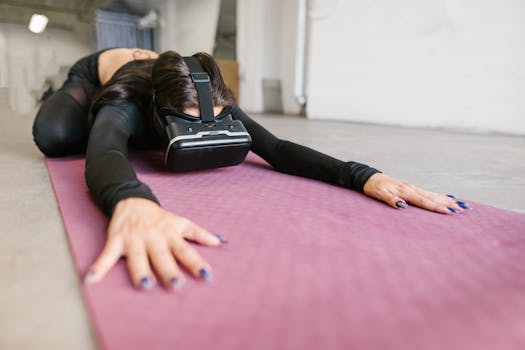Unlocking Mental Health: The Incredible Benefits of Regular Physical Activity
Takeaways: Regular physical activity is not just about physical fitness; it’s a powerful tool for enhancing mental health. Engaging in exercise can alleviate symptoms of anxiety and depression, improve mood, and boost overall well-being. Whether it’s a brisk walk, a dance class, or a gym session, incorporating movement into your routine can lead to profound mental health benefits.
Hey there! Let’s talk about something that I believe we all can relate to—mental health. You know, those days when you wake up feeling like a cloud is hanging over you? I’ve had my fair share of those. But over the years, I stumbled upon a little secret that changed everything for me: regular physical activity. Yup, just getting up and moving can have such a positive impact on how we feel mentally.
The Connection Between Physical Activity and Mental Health
So, why does physical activity have such a profound effect on our mental health? Well, first off, when we exercise, our bodies release endorphins—those feel-good hormones that can lift our spirits. I remember the first time I went for a jog after a stressful week. At first, I was hesitant. But once I got into a rhythm, I felt this incredible rush of energy and happiness. It was as if the weight of the world had been lifted off my shoulders.
But it’s not just about endorphins. Regular physical activity helps reduce levels of the body’s stress hormones, such as adrenaline and cortisol. You know that feeling when you’re overwhelmed? Exercise can be a natural stress reliever! Even a short session of stretching or yoga can help me find my center when life gets chaotic.
Combating Anxiety and Depression with Exercise
Did you know that studies have shown that exercise can be as effective as medication for some people dealing with mild to moderate depression? I often hear friends say they feel anxious or down, and I can’t help but suggest going for a walk or hitting the gym together. It’s amazing how a little movement can shift our perspective! When I’m feeling low, just stepping outside for a brisk walk can change my mood drastically.
One of the best parts? You don’t have to run a marathon to reap these benefits. Simple activities like dancing in your living room, gardening, or even doing some household chores can get your body moving and your heart pumping. Remember that time I turned on my favorite playlist and just danced around? It was like an instant mood booster!
Building Confidence and Social Connections
Another mental health benefit of regular physical activity is the boost in self-esteem and confidence that comes with it. When you stick to a workout routine, you start to see progress, both physically and mentally. I’ve experienced this firsthand. When I began lifting weights, I was nervous at first. But with time, I not only got stronger but also felt more confident in my abilities. It’s that feeling of accomplishment that can light up your whole day!
Plus, exercising can also be a fantastic way to connect with others. Joining a local sports team, a yoga class, or even a running club can help you meet new friends who share similar interests. The social aspect of physical activity is something I cherish. I’ve made some amazing friends through group classes, and we motivate each other on our fitness journeys.
How to Incorporate More Movement into Your Life
If you’re wondering how to get started, let me share some tips! First, find an activity you enjoy. Whether it’s swimming, biking, or even walking your dog, it doesn’t have to be anything fancy. Just make it fun! Next, set realistic goals. Maybe start with a 10-minute walk a few times a week and gradually increase your activity level. Remember, it’s all about making it a regular part of your routine.
Lastly, don’t forget to celebrate your achievements, no matter how small. Every step counts, and each time you choose to move, you’re doing something great for your mental health!
FAQs
Q: How often should I exercise for mental health benefits?
A: Aim for at least 150 minutes of moderate aerobic activity each week, or about 30 minutes on most days. But remember, any movement is better than none!
Q: What types of exercise are best for mental health?
A: Activities that you enjoy! Whether it’s walking, dancing, yoga, or team sports, choose what makes you happy.
Q: Can I see results quickly?
A: Many people notice mood improvements after just one session of exercise. However, for long-term benefits, consistency is key.
Q: What if I don’t like traditional workouts?
A: That’s perfectly fine! Think outside the box—try hiking, playing with your kids, or even gardening. Just keep moving!






